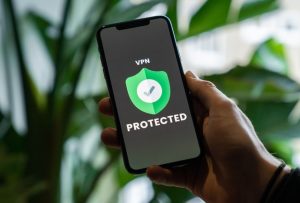Last updated on June 8, 2022
In today’s world, digital technology isn’t just a luxury; it’s a necessity. From entertainment to school and work, it’s almost impossible to exist in modern society without a connection to the online world. With more and more people becoming dependent on the internet for day-to-day activities, it’s become vital to protect your internet privacy and learn the proper tenets of digital citizenship. So who exactly is a digital citizen, and what principles govern responsible digital citizenship?
Who is a Digital Citizen?
A digital citizen is anyone who advocates and adheres to the responsible use of the technology we use every day, like:
- The Internet
- Computers
- Smartphones
- Any Other Digital Devices
A good digital citizen will encourage positive and healthy interactions online, maintaining awareness of common online scams or toxic behavior. They will avoid cyberbullying on social media or other digital platforms, focusing on empathy when interacting with others online.
The 5 Principles of Responsible Digital Citizenship
There are a number of ways you can maintain responsible digital citizenship, with most centering on productive interaction, safe usage, and building a good base of online knowledge. Here are five principles you can use to ensure you remain a digital citizen in good standing.
1. Understand How the Online World Works
You wouldn’t step into a car without taking a driving test, yet new people access the internet every day without knowing how it works. On the most basic level, the internet is a series of servers connected by a network of both wired and wireless connections. It’s a miraculous piece of technology, deserving of the same respect we reserve for other modern marvels like air travel or space flight. Take some time to research how the internet works; that way, you can better understand how to conduct yourself while online.
2. Be Respectful to Other Digital Citizens
Speaking of conduct, let’s talk about interacting with other digital citizens. Much like the real world, you should always practice empathy with anyone you meet online. It isn’t always to see the real person behind an avatar or screen name, which is what makes cyberbullying such a daunting issue. But understand that behind every post and picture is a living, breathing human just like you. If they treat you with respect, you should return the favor.
3. Be Careful about What You Share
Empathy is essential, but that doesn’t mean you should blindly trust anyone you meet online. Skepticism is especially important for students and other vulnerable members of society like the elderly. Don’t share your address, photos, or any personal information with someone you interact with on the internet unless you are 100% sure you know them. Otherwise, you may fall prey to one of the many scams that plague the digital world.
4. Keep an Eye Out for Scams
There are numerous ways cybercriminals can scam someone online; luckily, many of these scams can be avoided with the right knowledge and tools. Here are three common scams you should look out for.
- Phishing: one of the more common online threats, phishing involves a scammer impersonating someone you may trust and sending you a malicious link. Remember, always confirm what a link contains before you click, even if the person is a friend!
- Fake Websites: Especially common with shopping websites, cybercriminals will create a fake site to require you to enter personal information. Always use trusted marketplaces, and check the URL closely before entering any credit card information.
- Tech Support Scams: One that has grown recently in popularity, fake tech support agents will often ask for login information or remote access to your computer. They will then ask for money to fix your computer; this is a red flag! A real tech support agent won’t usually ask for any payment.
5. Protect Your Data and Identity
If you accidentally share personal information or reveal facts about your identity, don’t panic. There are free tools you can use, like an identity threat scan, to see whether your data has been compromised. If it has, you can see what has happened to your information and take the appropriate steps to stop any fraudulent activity.
How to Spread Digital Literacy
Educating others, especially students, about the benefits of digital literacy will help us establish a better online space for all digital citizens. Lessons about how to be digitally literate should start early before a child begins using the internet. The earlier and more comprehensive this education is, the lower the chance that a student will fall prey to an internet scam. By facilitating safe exposure to digital technology and walking new users through a period of trial and error, we can ensure that the internet will become a safe and positive environment for growth.
The Digital Age is Upon Us
There is no denying it; the internet will only become more intertwined with our lives as time goes on. That’s why digital citizenship and internet privacy are more crucial than ever; we need to teach students early about the right way to engage with others online. By doing so, we can maintain their healthy well-being and show everyone how to interact safely in social, professional, and educational communities.
About the author

David Lukić is an information privacy, security and compliance consultant at IDstrong.com. The passion to make cyber security accessible and interesting has led David to share all the knowledge he has.





Be First to Comment